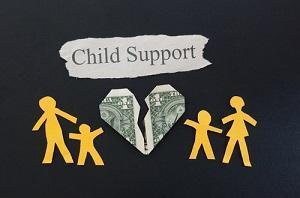Recent Blog Posts
When Non-Marital Assets Become Part of the Marital Estate
Posted on July 24, 2017 in Asset Division
 Most of the time, when a spouse brings property into a marriage, it will remain non-marital property, especially if the title is in his or her name only. However, there are occasions when such assets will become marital property—usually because the chain of ownership becomes muddled either accidentally or deliberately. It is always a good idea to be aware of these considerations in divorce law, lest you lose an asset that you wish to retain.
Most of the time, when a spouse brings property into a marriage, it will remain non-marital property, especially if the title is in his or her name only. However, there are occasions when such assets will become marital property—usually because the chain of ownership becomes muddled either accidentally or deliberately. It is always a good idea to be aware of these considerations in divorce law, lest you lose an asset that you wish to retain.
How Is Property Classified?
Dividing property can be very easy, or it can be so complex that expert opinions may be required. If you bring very little property into your marriage, there will be very little individual, or non-marital, property that is exempt from asset division. Conversely, if you have been married previously, or have significant assets otherwise, you may have substantial non-marital assets that you wish to keep separate from the estate of your current marriage.
Continue Reading ››
Added Expenses in Child Support Orders
Posted on July 20, 2017 in Child Support
 When you are ordered by the court to pay child support, you have a reasonable expectation of what the money will be used for--namely, meeting your children’s most basic needs. However, at least in Illinois, the law permits that additional expenses may be added on to the amount due if f they are shown to be in the child’s best interests.
When you are ordered by the court to pay child support, you have a reasonable expectation of what the money will be used for--namely, meeting your children’s most basic needs. However, at least in Illinois, the law permits that additional expenses may be added on to the amount due if f they are shown to be in the child’s best interests.
Health Insurance
Health insurance is by far the most common “additional expense” that supporting parents are asked to help pay, and it is often tacked on after a divorce decree because the general cost of insurance is too difficult to accurately estimate in advance. The costs of health insurance premiums can change, as well as the method for obtaining insurance. In many cases, the supporting parent will be ordered to carry his or her children on an employer-sponsored health plan. However, if the employer in question does not offer insurance, the law states that the recipient parent may cover the children, and the paying parent should reimburse him or her for a percentage of the cost.
Continue Reading ››
Finding Your Spouse's Hidden Assets
Posted on July 19, 2017 in Divorce
 Sometimes, divorces get ugly, as we all know. The most common way that spouses try to hurt each other during divorce, aside from arguing over their children, is to attempt to gain the upper hand in terms of property distribution by any means necessary—including the hiding of assets. If you suspect your spouse of hiding assets, there are multiple methods that can be used to help uncover the wrongdoing, either on your own or with professional help.
Sometimes, divorces get ugly, as we all know. The most common way that spouses try to hurt each other during divorce, aside from arguing over their children, is to attempt to gain the upper hand in terms of property distribution by any means necessary—including the hiding of assets. If you suspect your spouse of hiding assets, there are multiple methods that can be used to help uncover the wrongdoing, either on your own or with professional help.
Methods for Your Lawyer
In a divorce, your attorney is your primary resource if you suspect your spouse has committed a financial misdeed. There are multiple legal documents used during the civil process of divorce, especially during discovery, in which a party is bound by law to tell the truth, and they must do so in very specific ways, providing very specific information. Both parties are bound to comply with any discovery request that the court deems reasonable, which will usually be most of them.
Continue Reading ››
What Is the USFSPA?
Posted on July 13, 2017 in Divorce
 Military members marry, divorce, and deal with family just like everyone else. However, the nature of military service means that the law must be adapted to serve their unique needs at times. The Uniformed Services Former Spouses’ Protection Act (USFSPA) is a good example of this adaptivity that can help keep military service members and their former spouses in good shape even after a divorce.
Military members marry, divorce, and deal with family just like everyone else. However, the nature of military service means that the law must be adapted to serve their unique needs at times. The Uniformed Services Former Spouses’ Protection Act (USFSPA) is a good example of this adaptivity that can help keep military service members and their former spouses in good shape even after a divorce.
History of the Law
The USFSPA sets out regulations which must be followed by civilian courts in awarding military retirement pay as an asset in the division of a marital estate. It does not give a former spouse an automatic share in retirement pay; it merely grants the court the right to see such pay as an asset. The Act also allows civilian courts to enforce orders for child or spousal support against active or retired military service members.
Before its passage, there was essentially no statutory right to receive any amount of military or retired pay, exemplified by a high-profile case in 1981. In that case, the Supreme Court ruled that applying community property standards to military pay was precluded from happening by the language of the relevant statute and that to do so might undermine the impetus for many service members to enlist. In response to the court’s decision, the USFSPA was enacted, passing Congress with bipartisan support and being signed into law in 1982.
Continue Reading ››
Bankruptcy, Maintenance, and Child Support
Posted on July 12, 2017 in Child Support
 In this day and age, bankruptcy has become more common than it used to be, unfortunately, and as such, more and more people are encountering issues with other obligations that are directly related to bankruptcy. While many believe that a bankruptcy will essentially wipe out all their debt, what they do not know is that certain obligations are specifically exempted from this, and must still be paid regardless of any financial issues.
In this day and age, bankruptcy has become more common than it used to be, unfortunately, and as such, more and more people are encountering issues with other obligations that are directly related to bankruptcy. While many believe that a bankruptcy will essentially wipe out all their debt, what they do not know is that certain obligations are specifically exempted from this, and must still be paid regardless of any financial issues.
Spousal Maintenance
While it is not mandatory, a large number of divorce cases in Illinois assign maintenance rights to one spouse or the other. In Illinois, this obligation is specified to last a certain period of time, but if the obligor—the spouse who is paying support—must file for bankruptcy, it is reasonable to look into the possibility of modification. However, the key word is modification. Under the U.S. Internal Revenue Code, maintenance or alimony obligations are not considered dischargeable. In other words, any debts that are of this nature will not be simply erased, as other debts might be in a Chapter 7 bankruptcy.
Continue Reading ››
Pre- and Post-Decree Divorce Mediation
Posted on July 07, 2017 in Mediation
 Mediation and other forms of alternative dispute resolution are fast becoming a popular substitute for a standard courtroom divorce, especially for couples who still are able to maintain a good working relationship. However, it is not uncommon to see couples commencing a mediation without a real grasp of what it actually entails, especially if they are doing so post-decree, or after a divorce decree. While everyone’s experience will be slightly different, there are some things that remain the same and some that will differ from a pre-decree mediation.
Mediation and other forms of alternative dispute resolution are fast becoming a popular substitute for a standard courtroom divorce, especially for couples who still are able to maintain a good working relationship. However, it is not uncommon to see couples commencing a mediation without a real grasp of what it actually entails, especially if they are doing so post-decree, or after a divorce decree. While everyone’s experience will be slightly different, there are some things that remain the same and some that will differ from a pre-decree mediation.
Lots of Flexibility Pre-Decree
Finding a mediator in Illinois is usually not difficult, especially in the Chicago suburbs. There are multiple organizations that field trained mediation professionals, some (but not all) of whom are also attorneys. You must choose one if the mediation is not specifically court-ordered, but the fee to hire a mediator is generally split between both parties—though if you prefer, one party may foot the bill in exchange for assets or another advantage. The decision is up to the couple, as are most in this process.
Continue Reading ››
Divorcing an Abusive Spouse
Posted on June 27, 2017 in Divorce
 Sadly, many marriages are affecting by patterns domestic violence. While such abuse is most often characterized as perpetrated by a husband against his wife, it can come from either spouse, and it can be directed at anyone in the household. If you are in fear of an abusive or violent spouse and want a divorce, you do have some options and protection in Illinois. It may be imperative one day to know what you have at your disposal.
Sadly, many marriages are affecting by patterns domestic violence. While such abuse is most often characterized as perpetrated by a husband against his wife, it can come from either spouse, and it can be directed at anyone in the household. If you are in fear of an abusive or violent spouse and want a divorce, you do have some options and protection in Illinois. It may be imperative one day to know what you have at your disposal.
Have an Exit Plan
The main thing that every abused spouse needs to have when preparing to separate from or divorce a domestic abuser is a strategy for leaving if necessary. Plans for divorce must come after a successful exit and, likely, a restraining order. Statistics from the National Coalition Against Domestic Violence (NCADV) show that an abused spouse is at most risk in the two weeks immediately following their leaving the marital home. A prearranged exit plan that guarantees access to money and safe housing is absolutely critical lest you wind up back in your spouse’s hands.
Continue Reading ››
Can My Spouse Prevent a Divorce?
Posted on June 22, 2017 in Divorce
 Divorce can be one of the most difficult times in a person’s life, especially if they are not the one who initiated proceedings. However, some try to actively make things harder for their spouse by doing things such as refusing to sign divorce papers, hiding information, and generally doing their best to impede the legal process. When you are dealing with such obstruction, it is understandable to wonder if it is actually possible for your spouse to deny you a divorce, but rest assured, the answer is no,though it can be made complex and expensive by an intransigent partner.
Divorce can be one of the most difficult times in a person’s life, especially if they are not the one who initiated proceedings. However, some try to actively make things harder for their spouse by doing things such as refusing to sign divorce papers, hiding information, and generally doing their best to impede the legal process. When you are dealing with such obstruction, it is understandable to wonder if it is actually possible for your spouse to deny you a divorce, but rest assured, the answer is no,though it can be made complex and expensive by an intransigent partner.
Delay Tactics Are Common
If you are the person to initiate divorce proceedings against your spouse’s wishes, it is not uncommon for him or her to attempt to delay or otherwise affect proceedings. One common way in which a spouse may attempt to thwart a divorce going forward is to make themselves unavailable to sign the papers. The rationale behind this is the presumption that proceedings cannot go forward without proof that the responding party—your spouse, in this example—has at least been made aware of the filing.
Continue Reading ››
Marital Debt and Bankruptcy
Posted on June 20, 2017 in Asset Division
 If you or your spouse ends up in the unenviable position of having to file for both bankruptcy and divorce, it is imperative that you both understand the laws surrounding marital debts and bankruptcy. Many couples make assumptions and then react strongly when their carefully constructed asset division proposal collapses on itself. By educating yourself, you and your spouse can work to avoid such a fate.
If you or your spouse ends up in the unenviable position of having to file for both bankruptcy and divorce, it is imperative that you both understand the laws surrounding marital debts and bankruptcy. Many couples make assumptions and then react strongly when their carefully constructed asset division proposal collapses on itself. By educating yourself, you and your spouse can work to avoid such a fate.
Bankruptcy First?
One of the biggest questions regarding asset division, but especially marital debt, is whether to file for bankruptcy before divorce or vice versa. The general rule is that it depends on each spouse’s individual finances, and which type of bankruptcy would be filed. However, in most cases, filing beforehand tends to streamline the divorce process, while filing afterward or concurrently can cause a divorce to drag on. This is especially true if you or your spouse would be filing a Chapter 7 bankruptcy, either jointly or individually. In a Chapter 7, all debts are eliminated or written off, as opposed to in other types of bankruptcy where restructuring is more common.
Continue Reading ››
Relocating With Your Child After Divorce
Posted on June 15, 2017 in Child Custody
 It is not uncommon after a divorce that one or both spouses express a desire to relocate, whether their intent is to change jobs, to get a fresh start, or for some other reason. However, if there are children involved in the marriage and divorce, it is incumbent upon all involved to have a discussion about where one is able to relocate and still have contact with their children, presuming contact is still a desired goal. Illinois law regarding relocation was amended at the beginning of last year, so some well-meaning parents may not even be aware that restrictions are now different. Still, the consequences can be significant for those who do not follow the law.
It is not uncommon after a divorce that one or both spouses express a desire to relocate, whether their intent is to change jobs, to get a fresh start, or for some other reason. However, if there are children involved in the marriage and divorce, it is incumbent upon all involved to have a discussion about where one is able to relocate and still have contact with their children, presuming contact is still a desired goal. Illinois law regarding relocation was amended at the beginning of last year, so some well-meaning parents may not even be aware that restrictions are now different. Still, the consequences can be significant for those who do not follow the law.
Notice Is Mandatory
The first thing to be aware of when discussing relocation ability is that notice must be provided to the other parent in writing, and it must be at least 60 days before the planned relocation if possible. If not, “as soon as practicable” will generally suffice. You must provide your new address and moving date (if known), as well as a rough approximation of how long the relocation will last if it is intended to be temporary. For example, a military servicemember may seek to relocate with his or her children for the duration of their assignment at a specific base or posting.
Continue Reading ››







 Most of the time, when a spouse brings property into a marriage, it will remain non-marital property, especially if the title is in his or her name only. However, there are occasions when such assets will become
Most of the time, when a spouse brings property into a marriage, it will remain non-marital property, especially if the title is in his or her name only. However, there are occasions when such assets will become  When you are ordered by the court to pay
When you are ordered by the court to pay  Sometimes, divorces get ugly, as we all know. The most common way that spouses try to hurt each other during divorce, aside from arguing over their children, is to attempt to gain the upper hand in terms of
Sometimes, divorces get ugly, as we all know. The most common way that spouses try to hurt each other during divorce, aside from arguing over their children, is to attempt to gain the upper hand in terms of  Military members marry, divorce, and deal with family just like everyone else. However, the nature of military service means that the law must be adapted to serve their unique needs at times. The Uniformed Services Former Spouses’ Protection Act (USFSPA) is a good example of this adaptivity that can help keep military service members and their former spouses in good shape even after a
Military members marry, divorce, and deal with family just like everyone else. However, the nature of military service means that the law must be adapted to serve their unique needs at times. The Uniformed Services Former Spouses’ Protection Act (USFSPA) is a good example of this adaptivity that can help keep military service members and their former spouses in good shape even after a  In this day and age, bankruptcy has become more common than it used to be, unfortunately, and as such, more and more people are encountering issues with other obligations that are directly related to bankruptcy. While many believe that a bankruptcy will essentially wipe out all their debt, what they do not know is that certain
In this day and age, bankruptcy has become more common than it used to be, unfortunately, and as such, more and more people are encountering issues with other obligations that are directly related to bankruptcy. While many believe that a bankruptcy will essentially wipe out all their debt, what they do not know is that certain  Mediation and other forms of alternative dispute resolution are fast becoming a popular substitute for a standard courtroom
Mediation and other forms of alternative dispute resolution are fast becoming a popular substitute for a standard courtroom  Sadly, many marriages are affecting by patterns domestic violence. While such abuse is most often characterized as perpetrated by a husband against his wife, it can come from either spouse, and it can be directed at anyone in the household. If you are in fear of an abusive or violent spouse and want a
Sadly, many marriages are affecting by patterns domestic violence. While such abuse is most often characterized as perpetrated by a husband against his wife, it can come from either spouse, and it can be directed at anyone in the household. If you are in fear of an abusive or violent spouse and want a 
 If you or your spouse ends up in the unenviable position of having to file for both bankruptcy and divorce, it is imperative that you both understand the laws surrounding
If you or your spouse ends up in the unenviable position of having to file for both bankruptcy and divorce, it is imperative that you both understand the laws surrounding  It is not uncommon after a
It is not uncommon after a 
